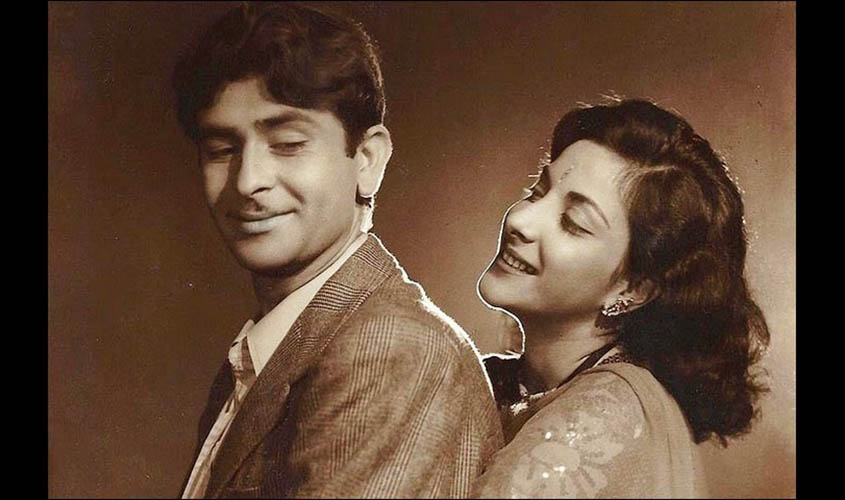Sanju may be a biopic on the chequered life of cine superstar Sanjay Dutt, but the idea for its making has evidently been two-fold. First and foremost, it is the presentation of glimpses of Dutt’s life from his very own prism, and secondly it is an effort to resurrect the sagging career of Ranbir Kapoor, who sorely required a huge hit to hold on to the top bracket. In fact, the objective of the filmmakers as also the actors has been well served, given the phenomenal response the film has received at the box office. The audience is also drawn in by the fact that it is Raj Kapoor’s grandson who has portrayed the character of Nargis’ son, thereby refocusing on the folklore of one of the most talked about romances of Bollywood.
Sanju is indeed a riveting movie, even though Paresh Rawal is definitely a miscast and is unable to fit into the shoes of the legendary actor, filmmaker and politician Sunil Dutt, whose never say die spirit and his unflinching commitment to his family besides his overall resilience are in full view. Like Rustam, a recent cinematic narrative of Nanavati who killed his wife’s paramour, Prem Ahuja nearly six decades ago, attempted to derive sympathy towards the iconic naval officer, Sanju too, is a clear effort to put forth the actor’s version of events that determined his life; culminating in him being charged under the Terrorist and Disruptive Activities (Prevention) Act (TADA) for being in possession of an AK-56 assault rifle and his alleged complicity with those responsible for the gruesome Bombay bomb blasts in the wake of the demolition of Babri Masjid.
It is purely another matter that his account can be contested in terms of factual inconsistencies and inaccuracies, yet the filmmakers have virtually managed to overcome the limitations through their creative licence in stringing together a fascinating tale of the famous star who served considerable time in prison for his crime. It simultaneously depicts the dedication of his father who stood by him all through, so as to clear his name of charges that accused him of being a terrorist. The Dutts, as a family, were known as being immensely patriotic and in fact their film company, Ajanta Arts, entertained our troops during all major wars India had to face in the 1960s and 1970s. Nargis was nominated to the Rajya Sabha and Sunil Dutt was the sheriff of Bombay before being an elected Lok Sabha representative and subsequently a Union Cabinet Minister.
The movie needlessly attempts to blame the media for the alleged smearing of Sanjay Dutt’s role in the Bombay blasts, while in fact, if he is walking free today, the national press played a vital role. In the mid 1990s, Sunil Dutt had approached his close friend, Mohammad Shamim, who spent most of his journalistic career working for the Times of India group in key positions. Dutt was deeply perturbed that TADA was being widely abused and was essentially targeting members of solely one community and as a result even for petty crimes certain individuals had been jailed under this Act.
Being my senior and mentor in TOI, Shamim had contacted me (I was the Deputy Resident Editor, Delhi and coordinated with states, synchronising the efforts of the TOI News Service Desk on specific issues) and thereby a meeting of Dutt with Gautam Adhikari, the Executive Editor of the paper was arranged. Consequently, the TOI ran a series of articles from various state capitals on the misuse of TADA, finally leading to its repeal. Thus, in the long run, this objective and unbiased reporting by TOI correspondents worked out to Sanjay Dutt’s advantage.
It is evident that Sanjay who briefed the filmmakers was oblivious of many such tireless efforts of his father, who, in order to play down his pro-Islamic image, had taken the assistance of Jagjiwan Bakhshi, a fellow Mohiyal Brahmin, extensively well-connected in the capital’s media circles. This was when Subhash Ghai’s Khalnayak was to be released as his comeback film. At Bakhshi’s behest, Sanjay was felicitated by certain Sanatani groups in Delhi. It is another issue that after things smoothened out, Sunil Dutt did not bother to give Bakhshi a backward glance, a matter his secretary, Gaur was aware of. Gaur, once an aide of Hemvati Nandan Bahuguna, subsequently served on the personal staff of Priya Dutt when she succeeded her father in the Lok Sabha.
The short point is that narratives often get blurred thereby with the passage of time distortions of truth occur based on the interpretations of those who continue to remain relevant. For instance, for most people, the story of Hindi film
Similarly, Sanju should be viewed as a well-made biopic and not as a frame-by-frame enactment of the actor’s life and times. Between us.

